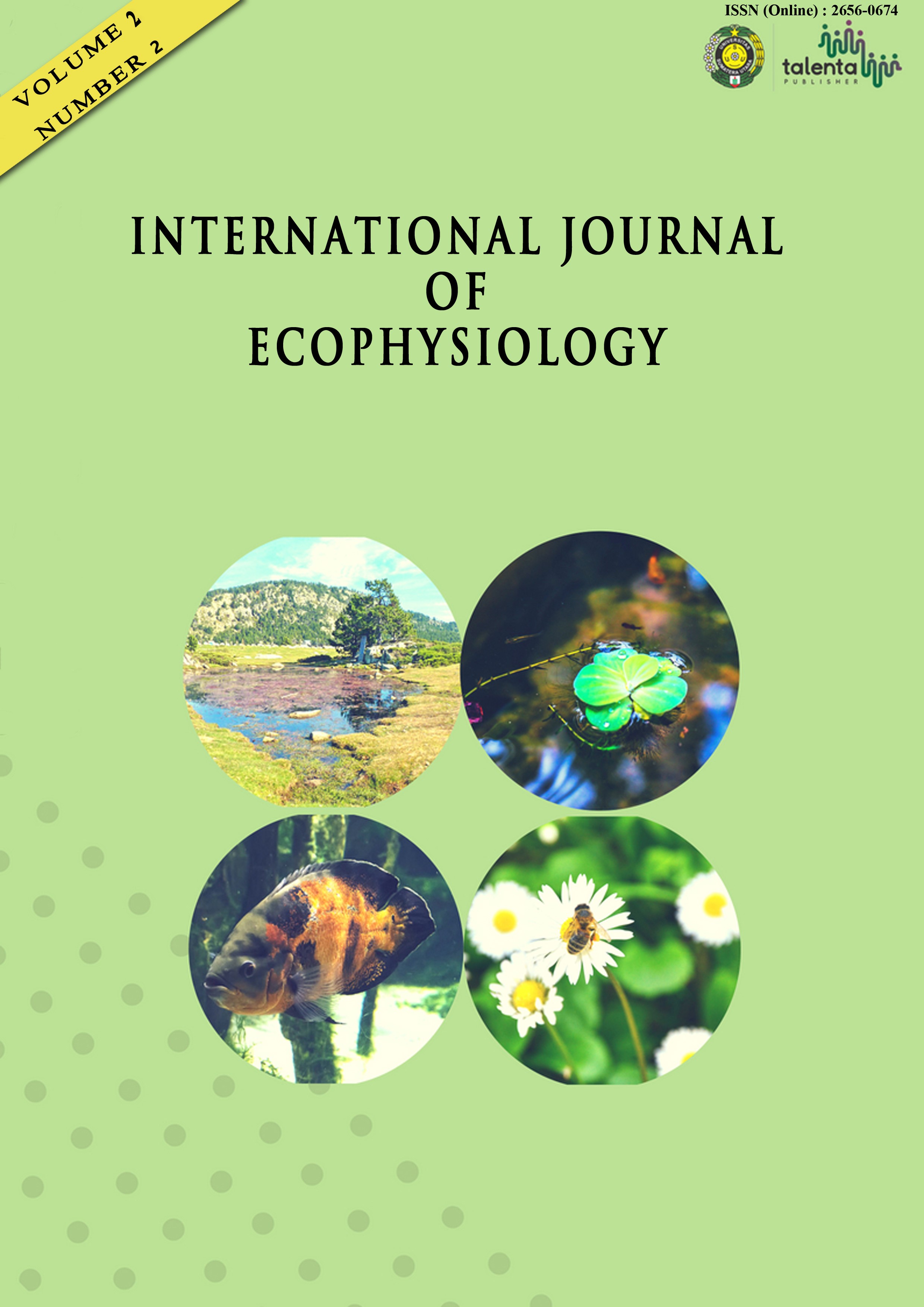ISOLATION AND DEGRADATION STUDY ON CARBOSULFAN CONTAINING PESTICIDE OF BIOSUFACTANT-PRODUCING BACTERIA FROM BELAWAN SUMATERA
DOI:
https://doi.org/10.32734/ijoep.v2i02.4676Keywords:
Carbosulfan, biodegradation of pesticide, bioremediation, biosurfactantAbstract
Uncontrol use of synthetic pesticide causes environmental pollution and leaves its residue in soil and water. The objective of this research was to obtain bacterial isolates capable of producing biosurfactant from Belawan North Sumatera and to observe their biosurfactant activities as well as their potential in degrading of carbosulfan pesticide. Bacteria were isolated using selective medium, Bushnell-Hass Agar (BHA) containing 2% of pesticide with carbosulfan as the active compound. The result showed that all bacterial isolates were able to grow on the medium and consumed carbosulfan as the carbon sourc. The highest cell population was shown by isolate Sp.1 with total count was 7.6×109 CFU/ml. The highest biosurfactant activity was shown by isolate Sp.6 with the volume of emulsion was 5.627 cm3, meanwhile the highest production of biosurfactant shown by Sp.7 with concentration was 54.6 ppm. Two isolates, Sp.1 and Sp.6 were selected for further test to study their abilities in carbosulfan degradation. Both isolates were able to degrade carbosulfan completely after 21 days of incubation.














